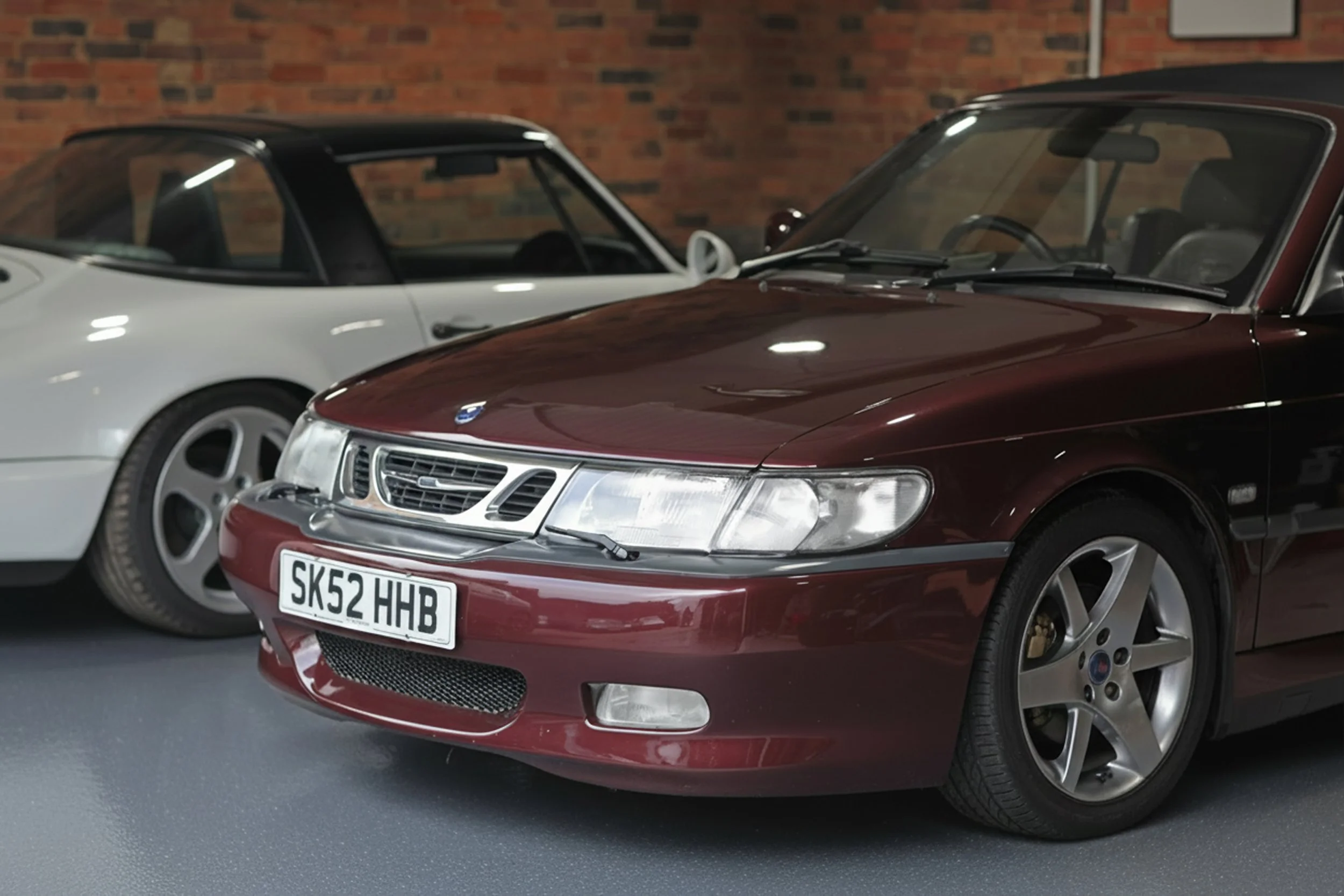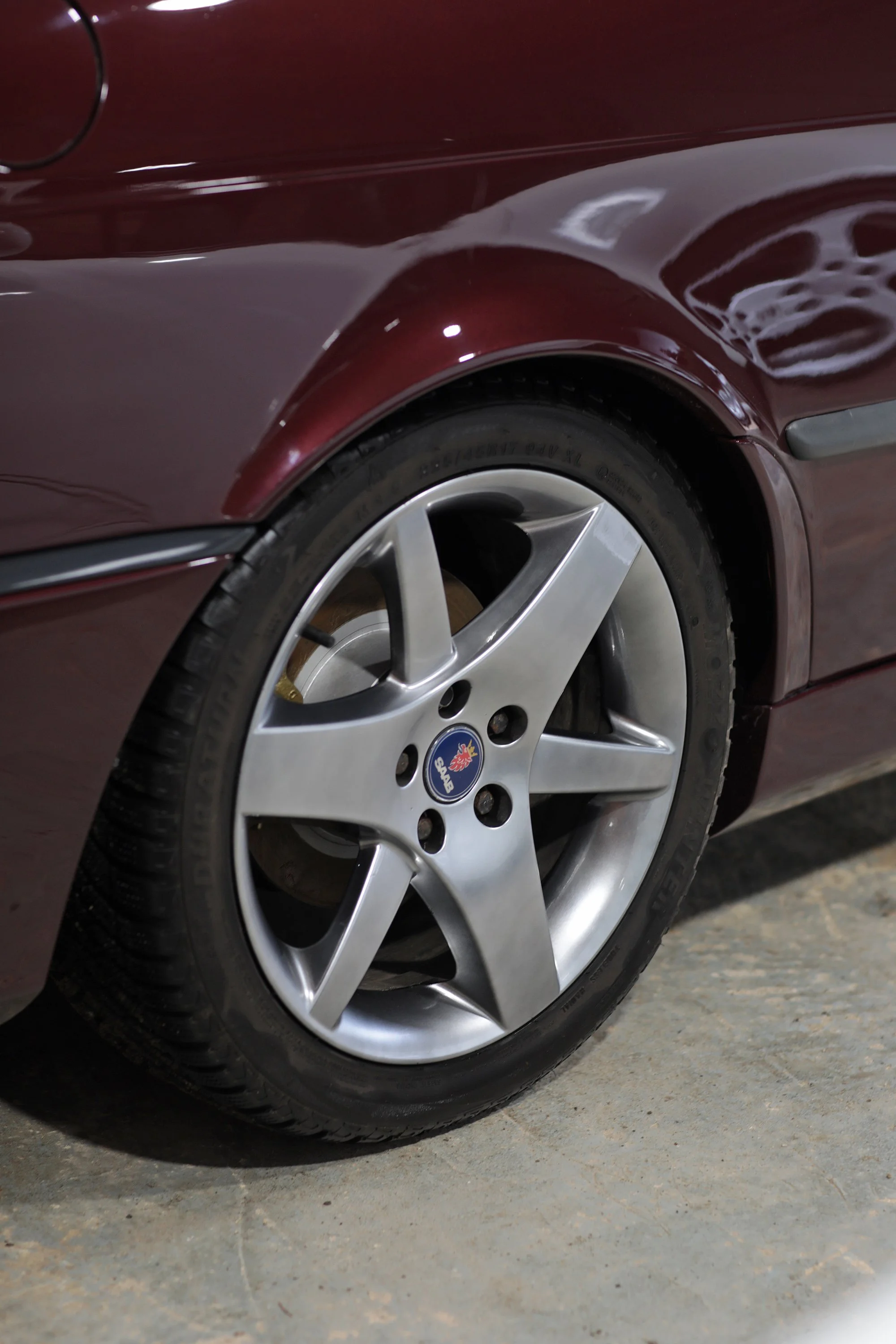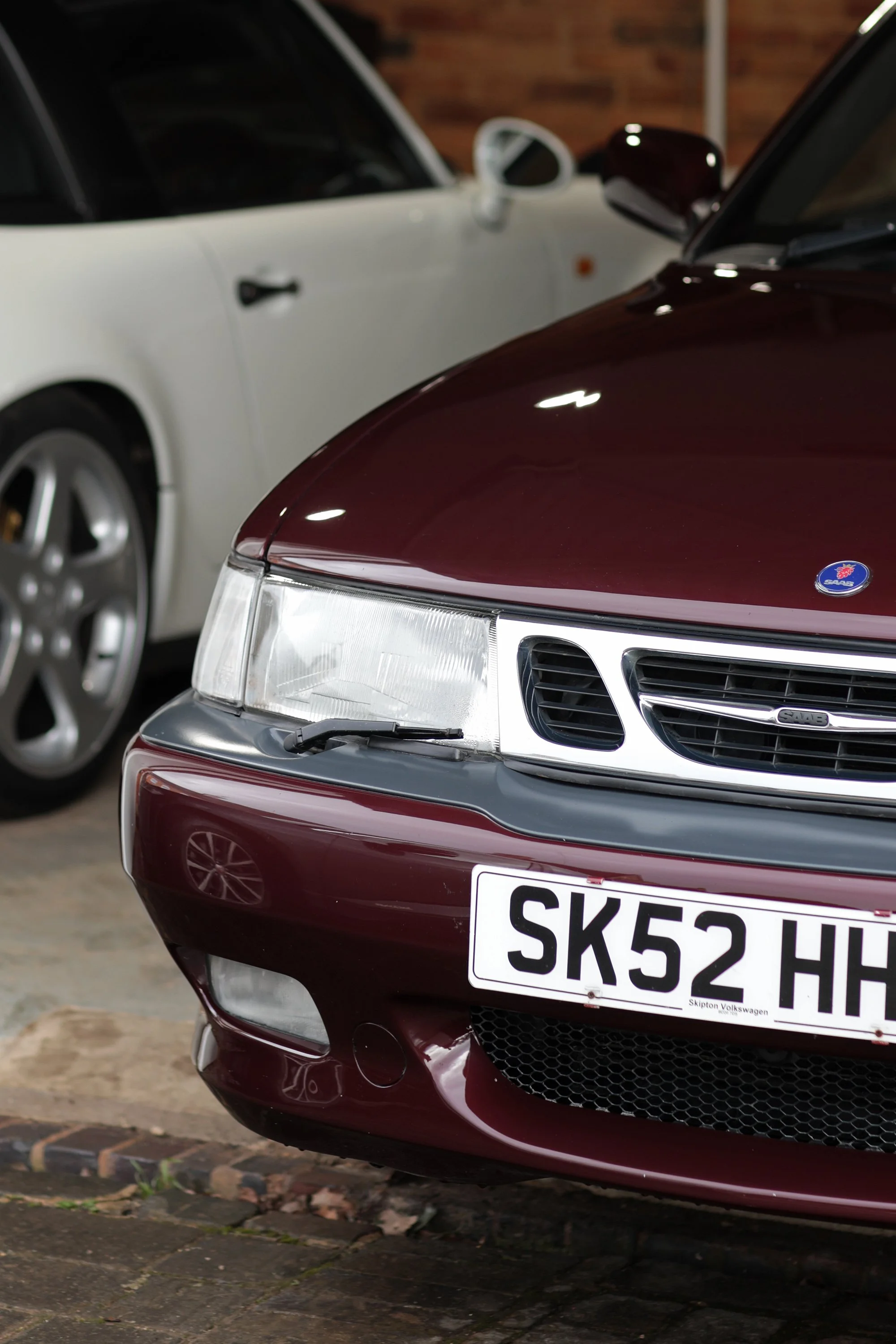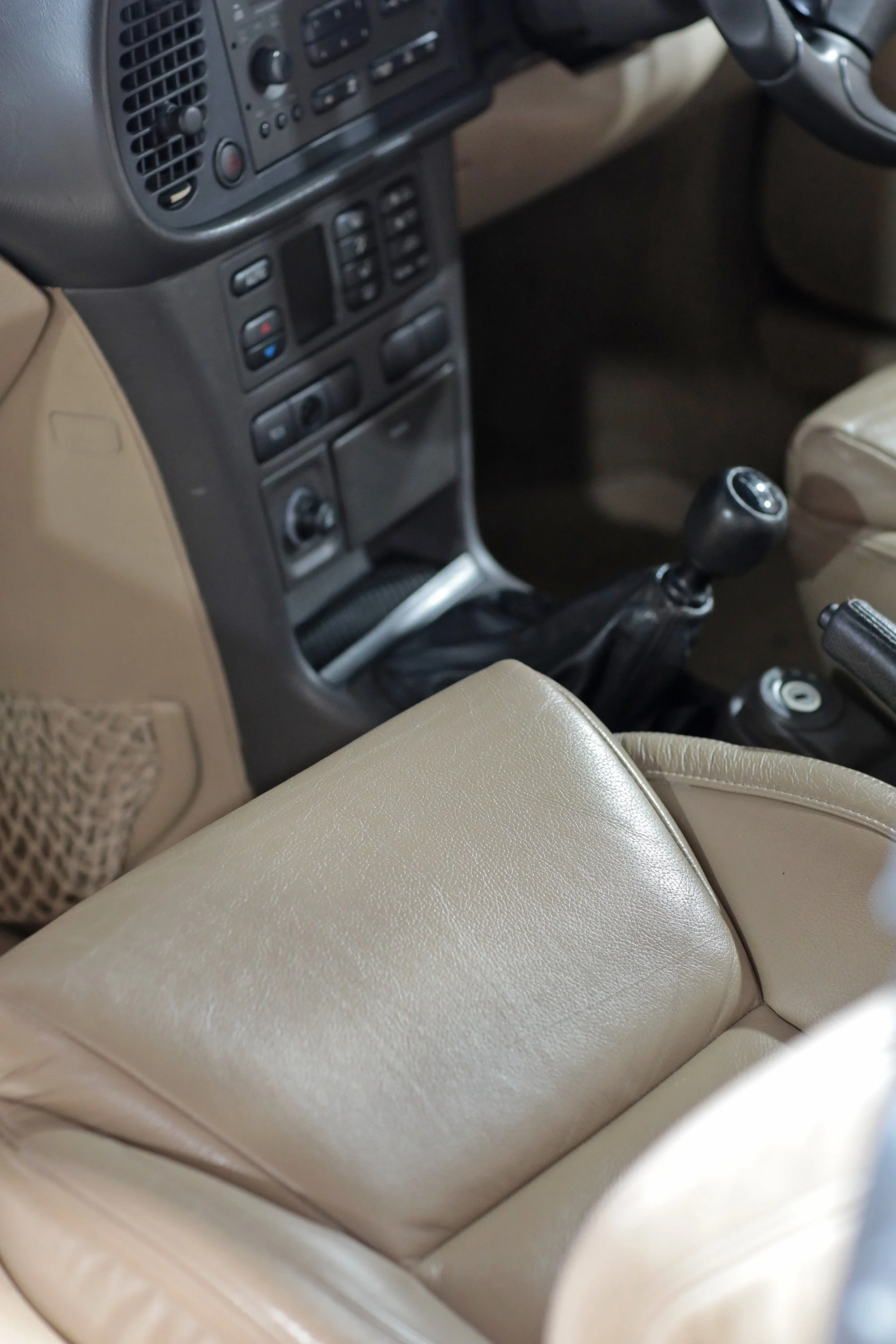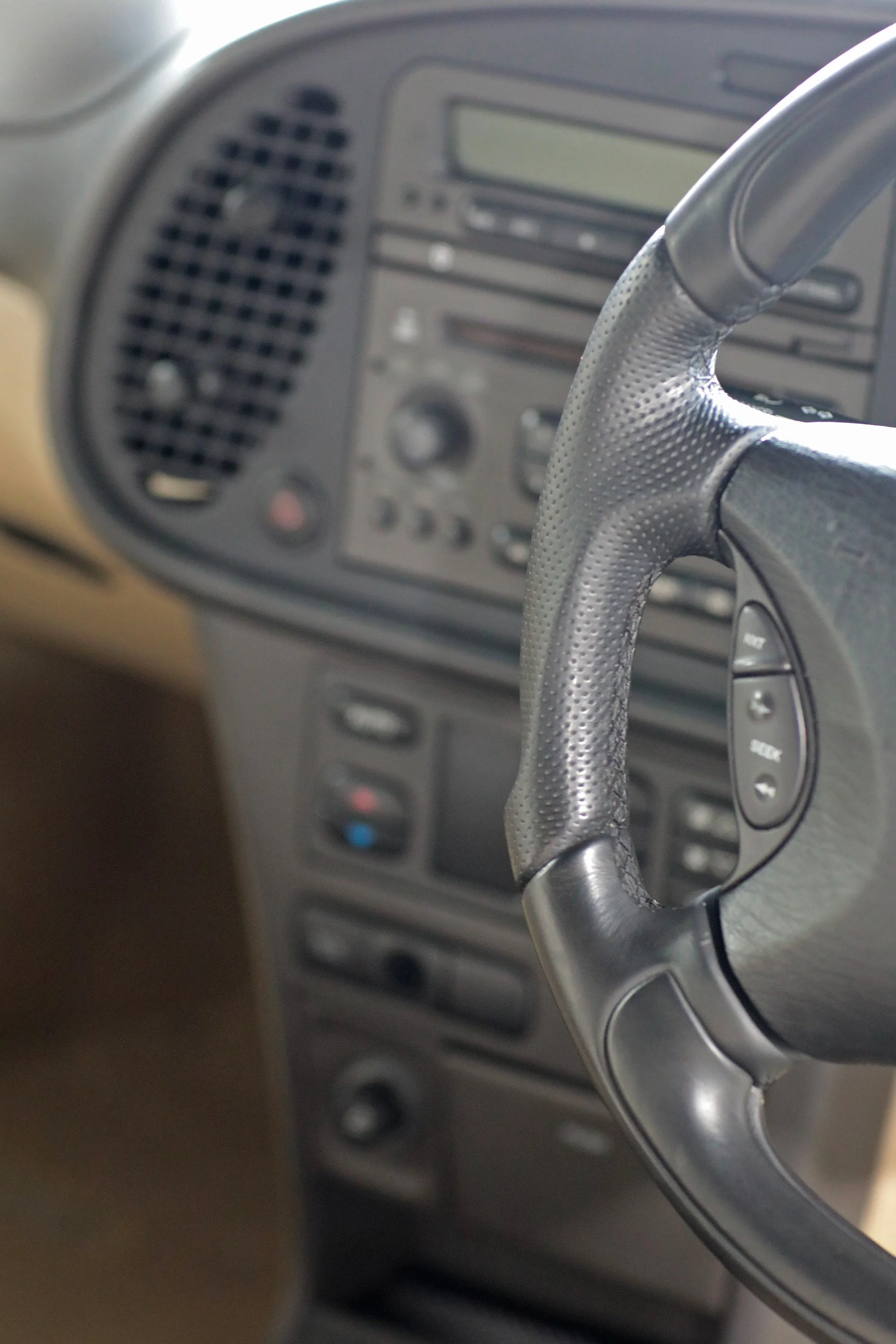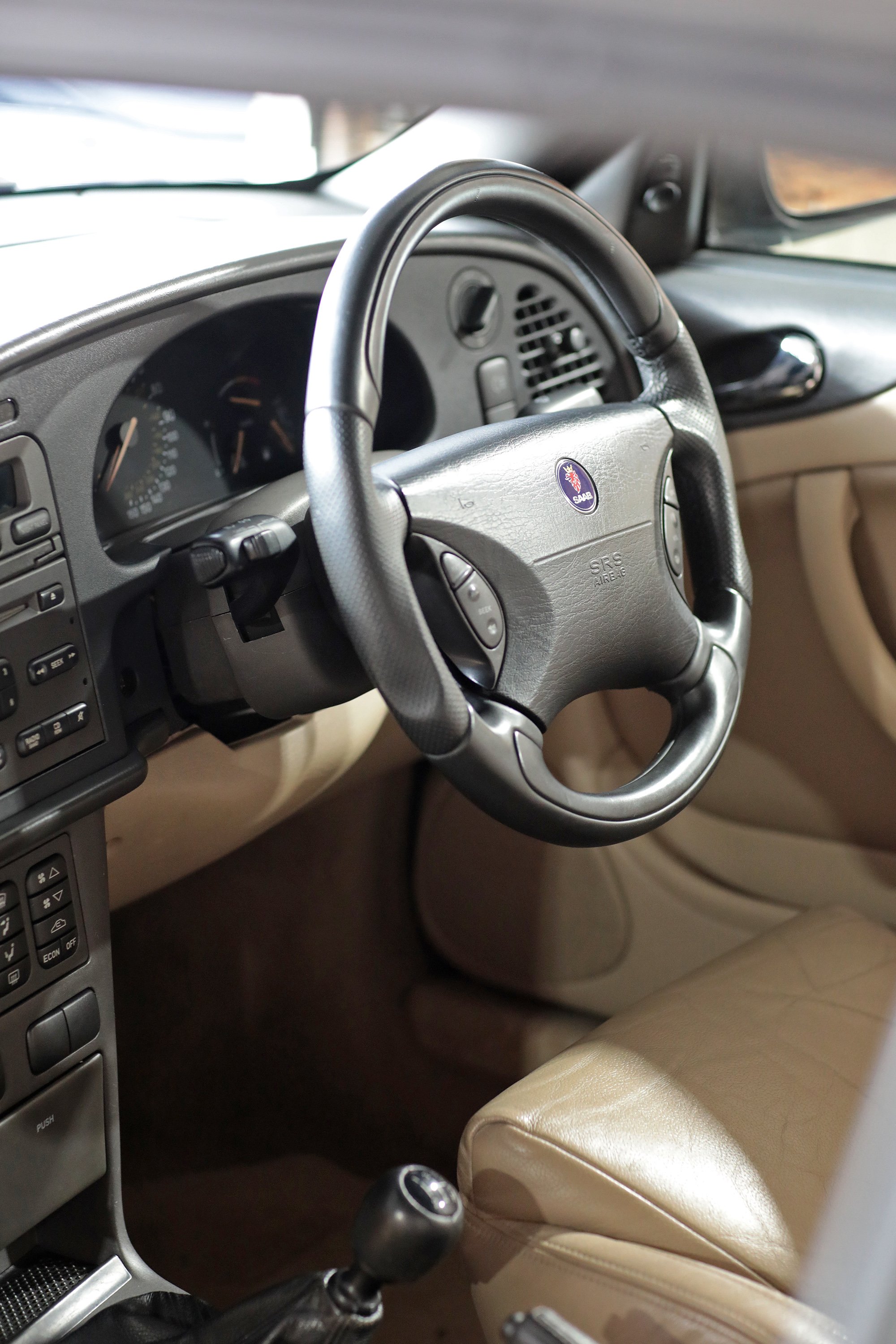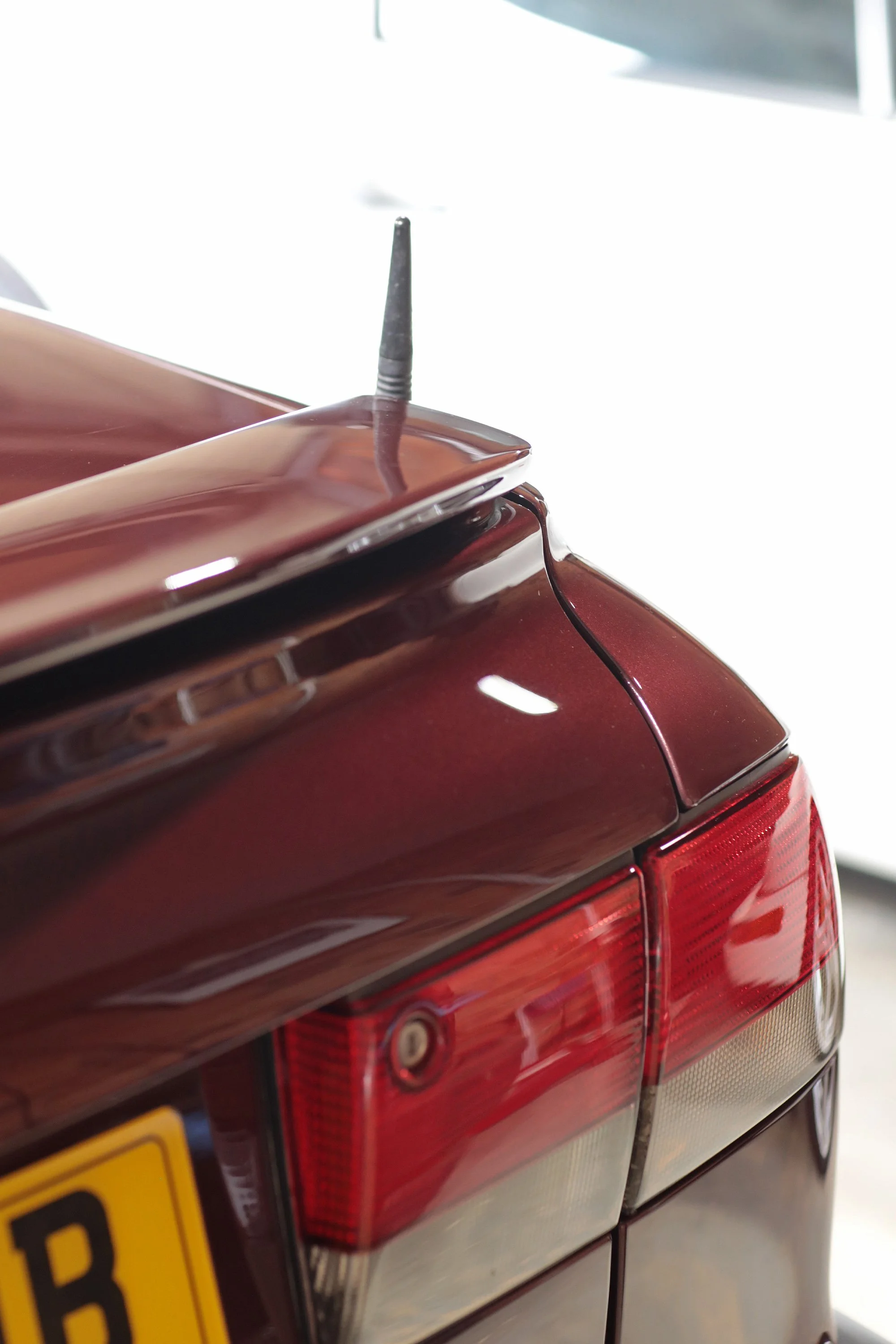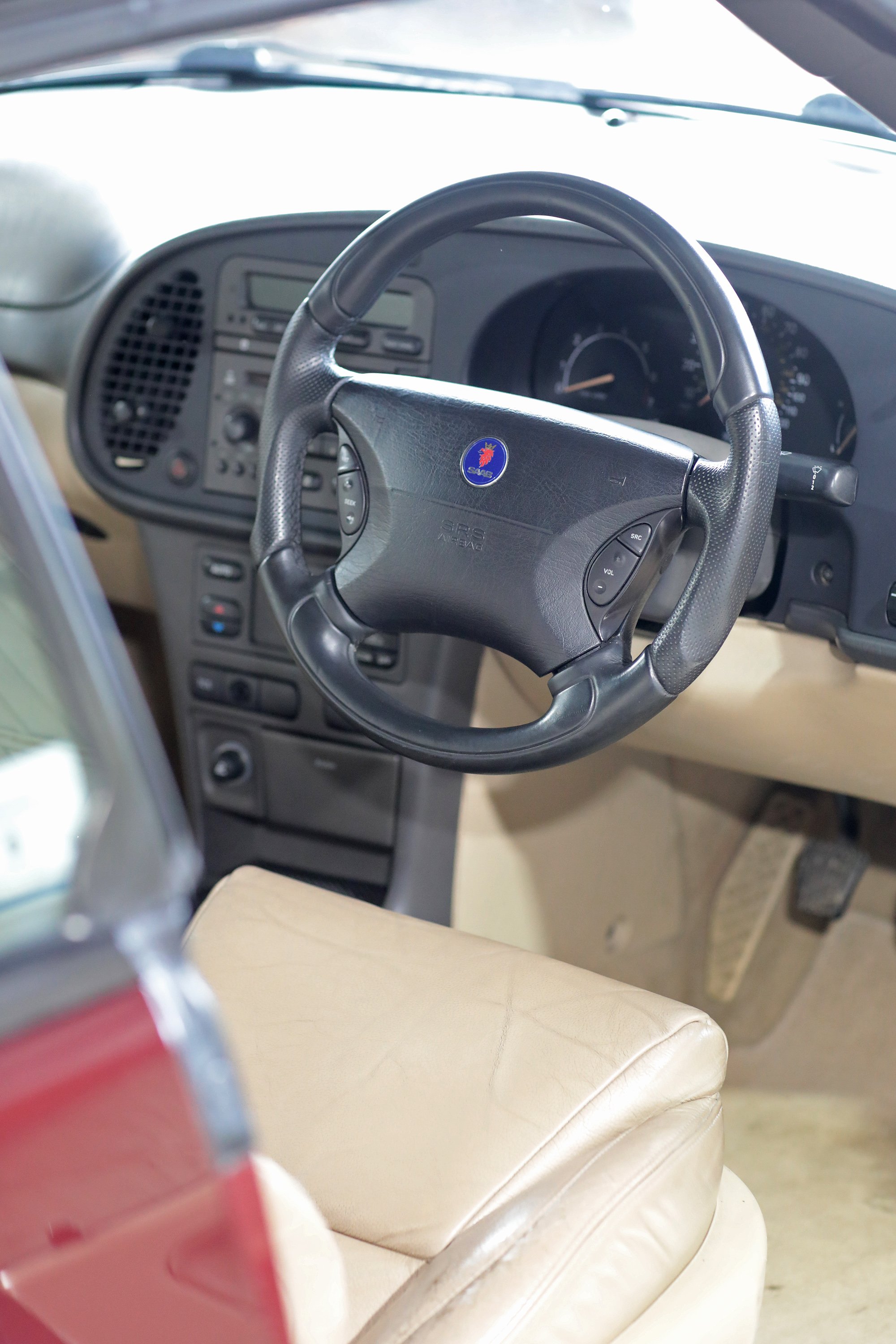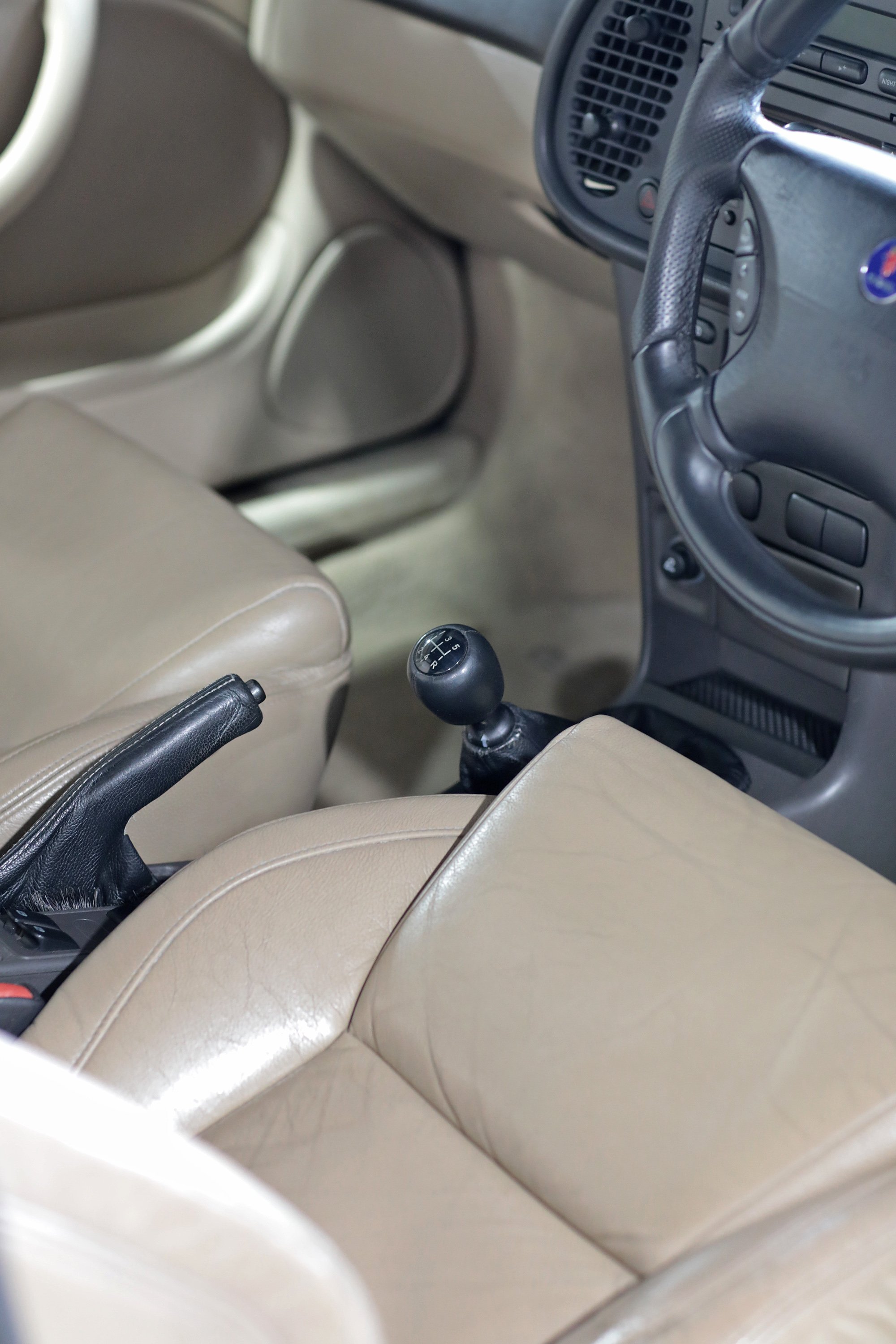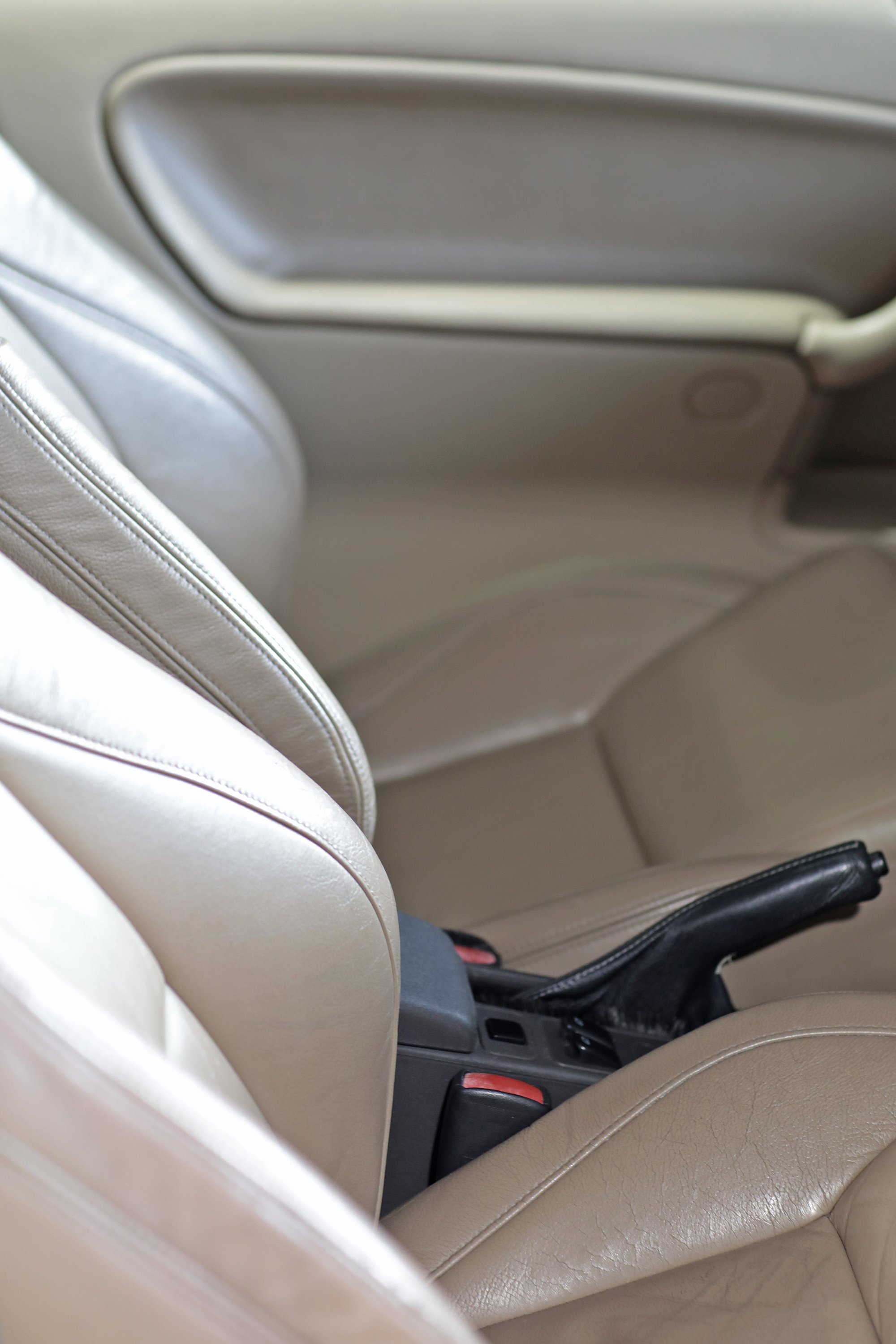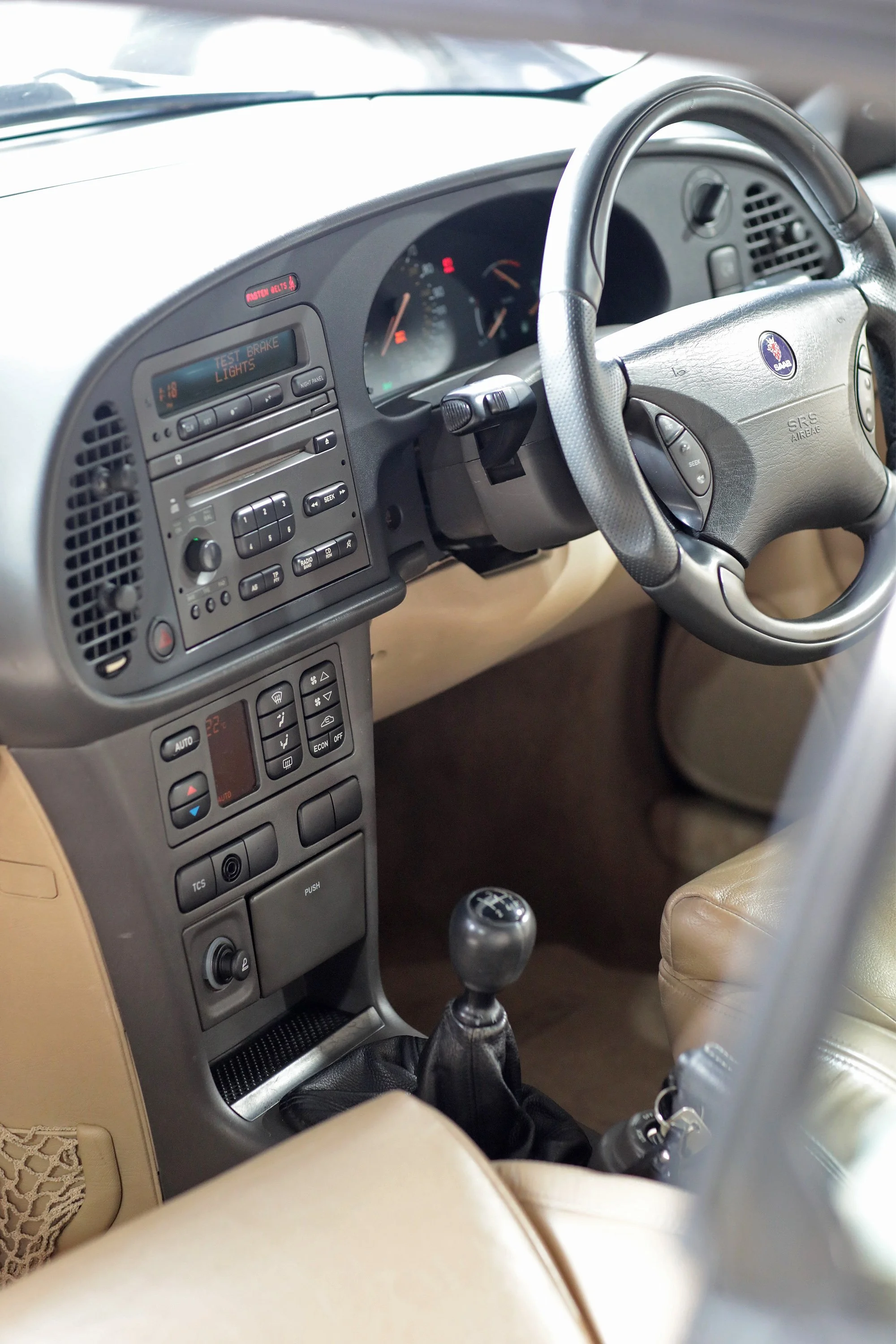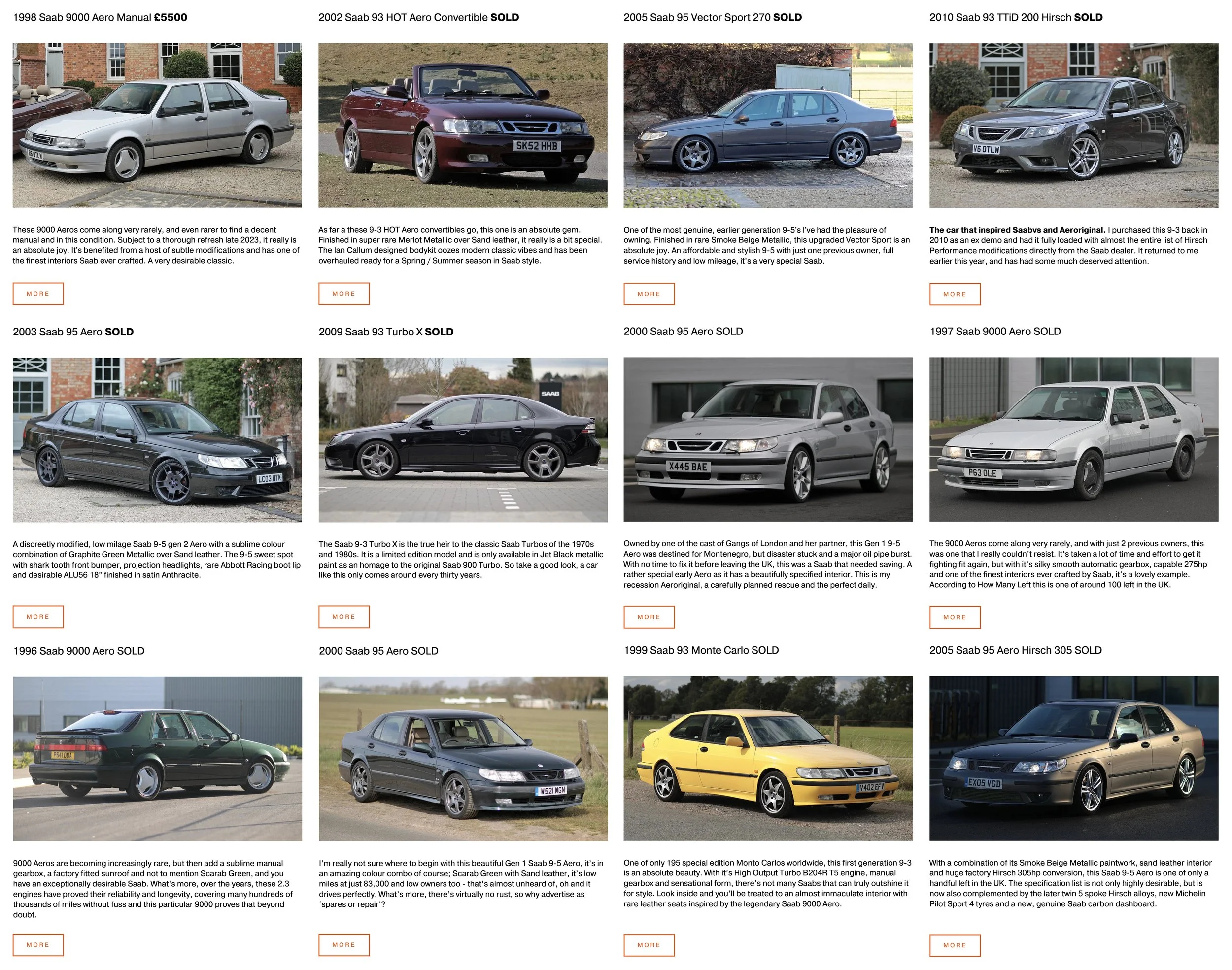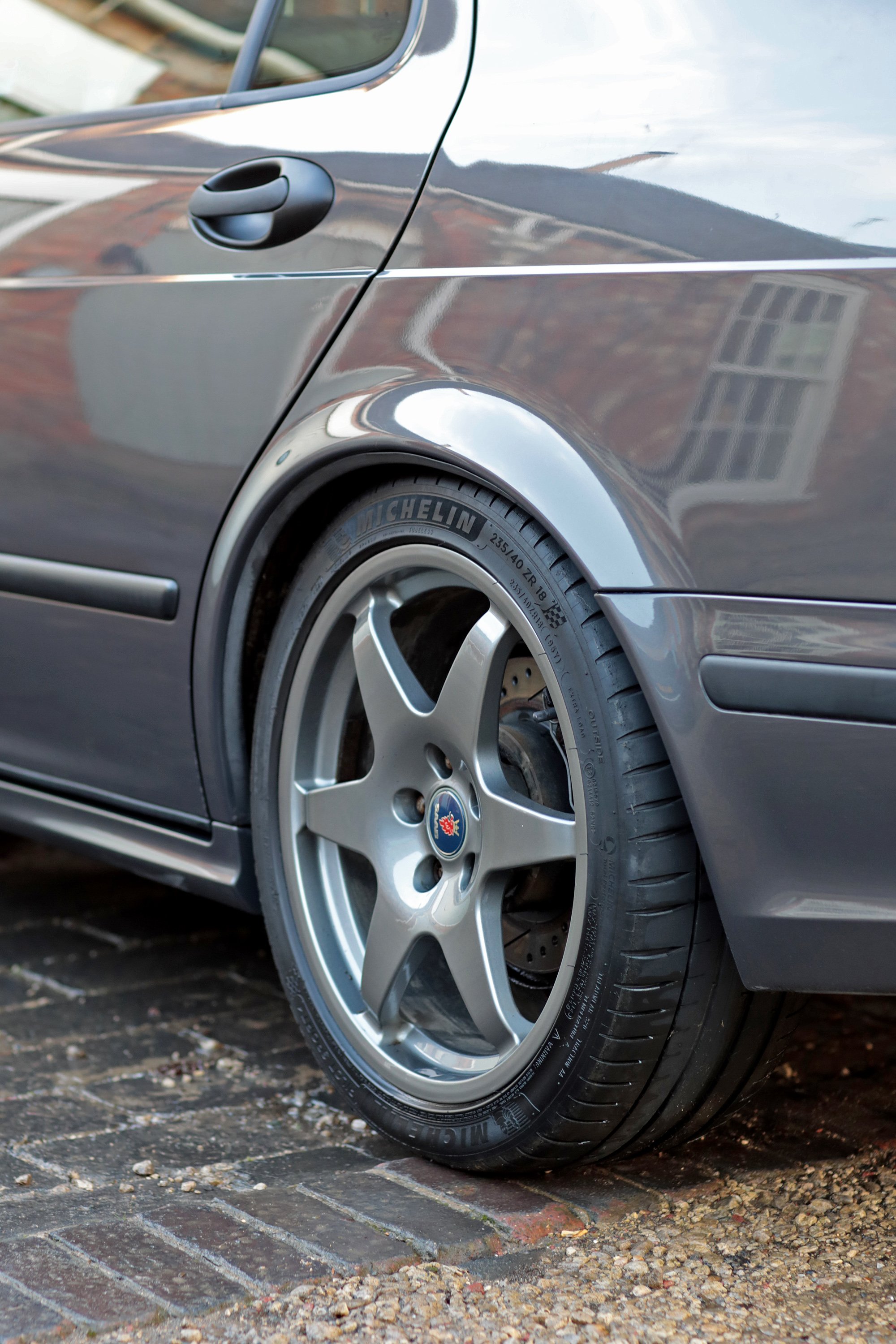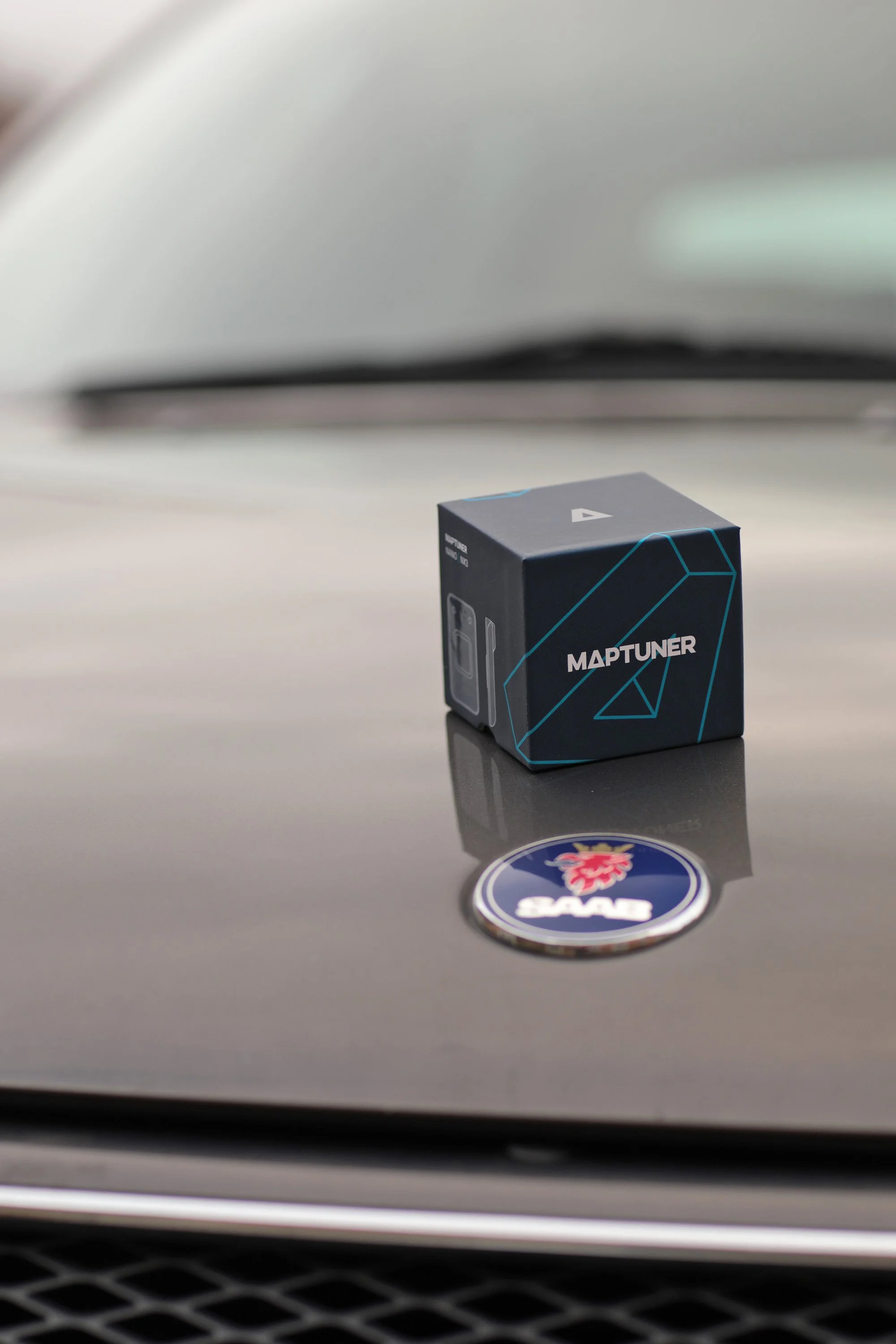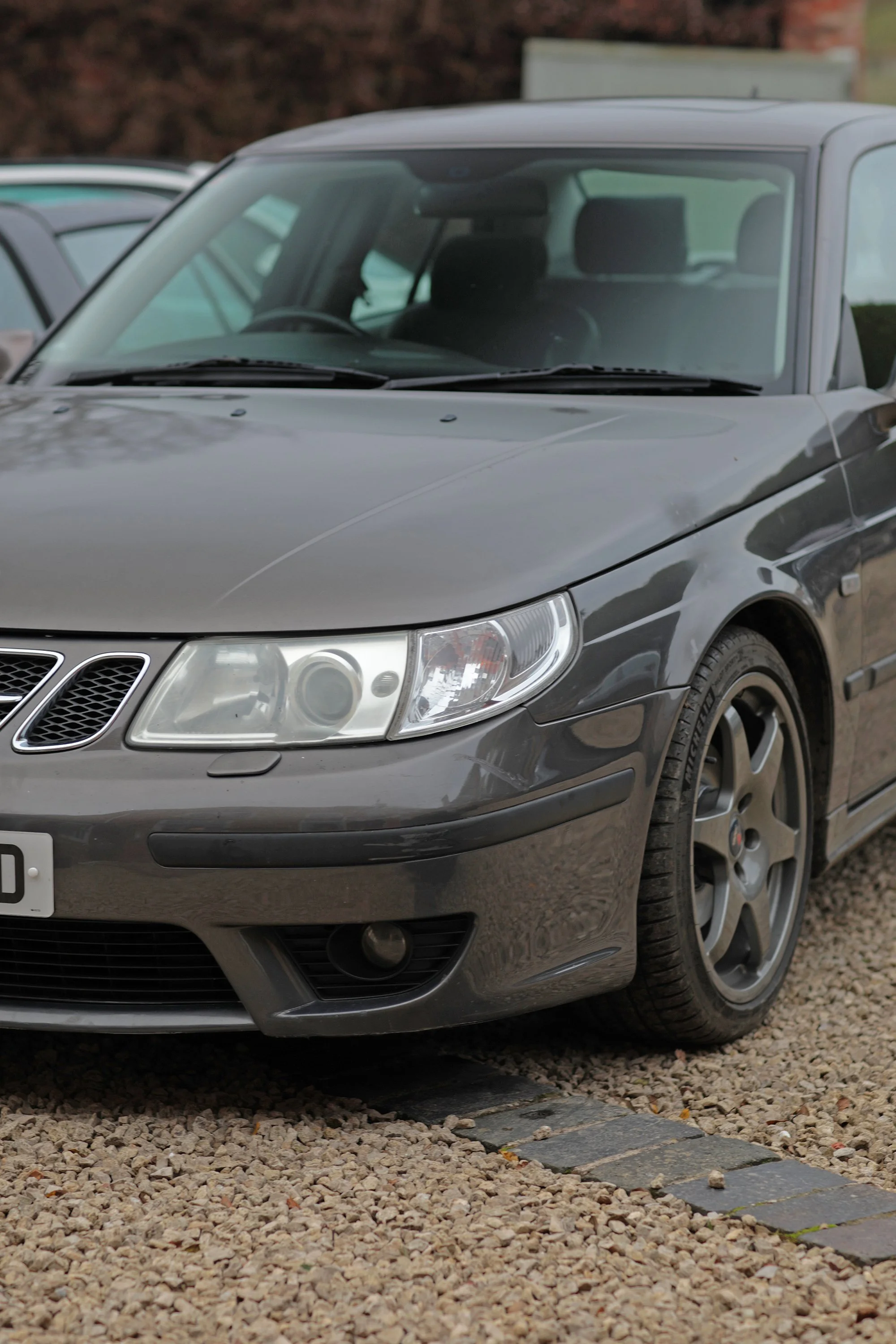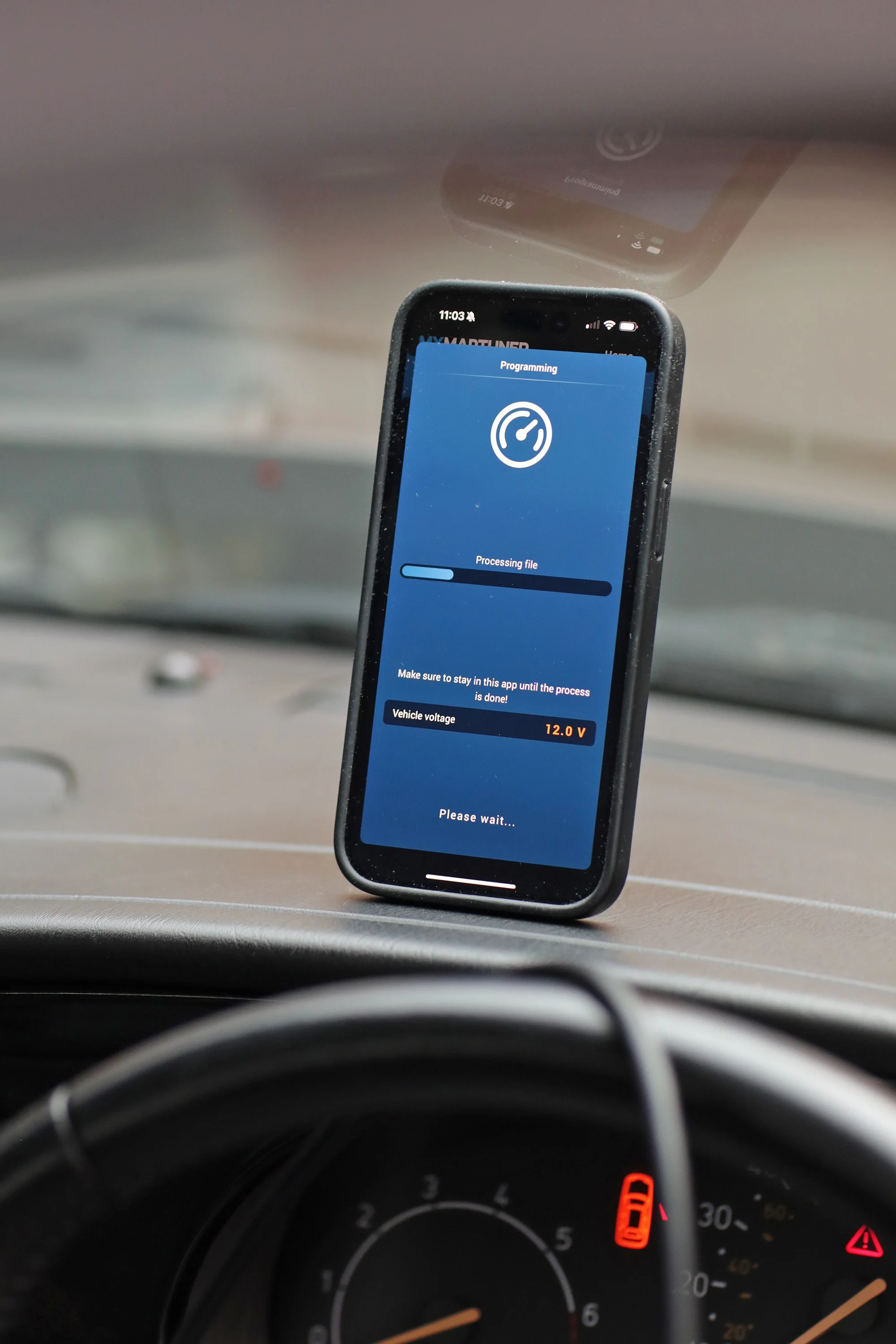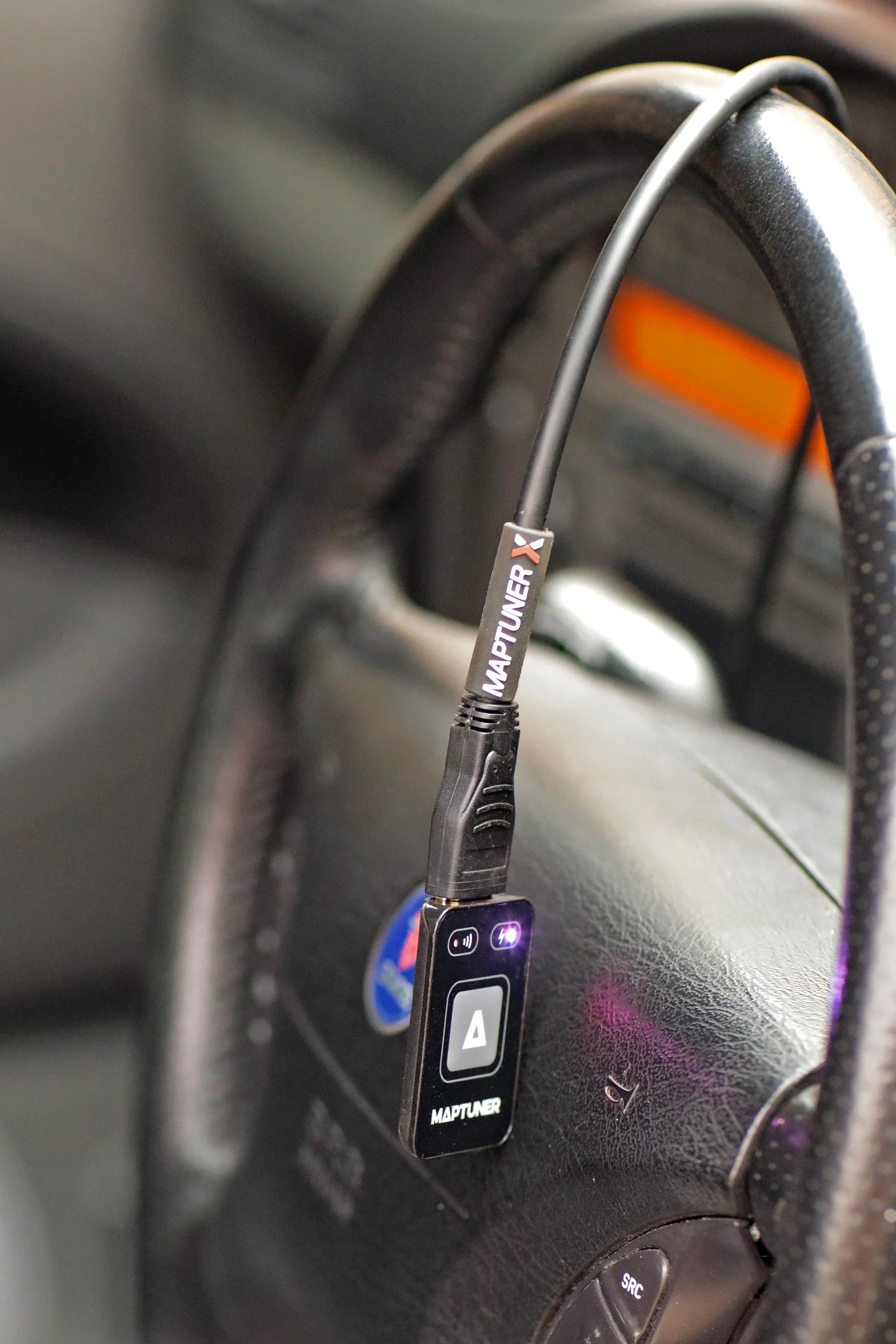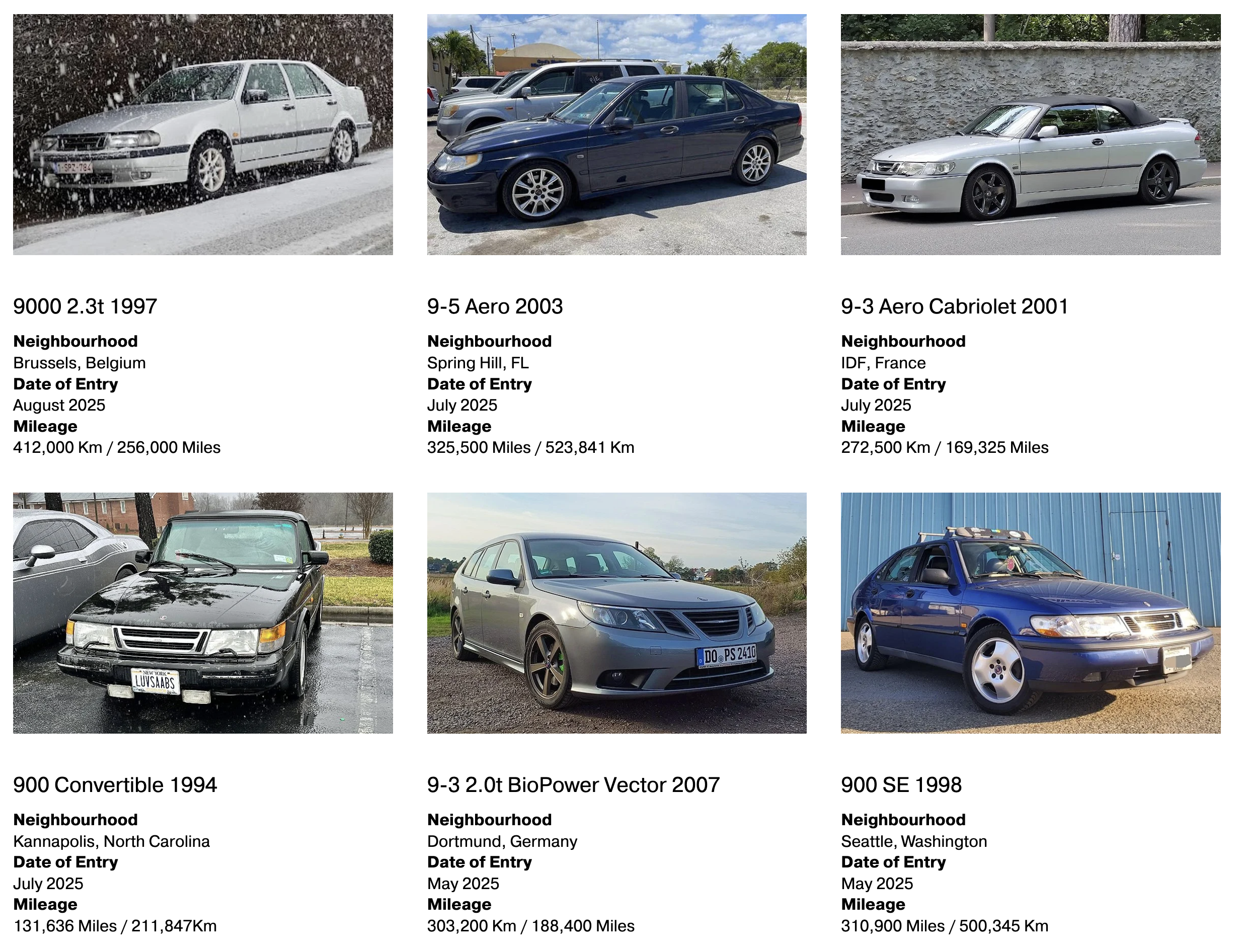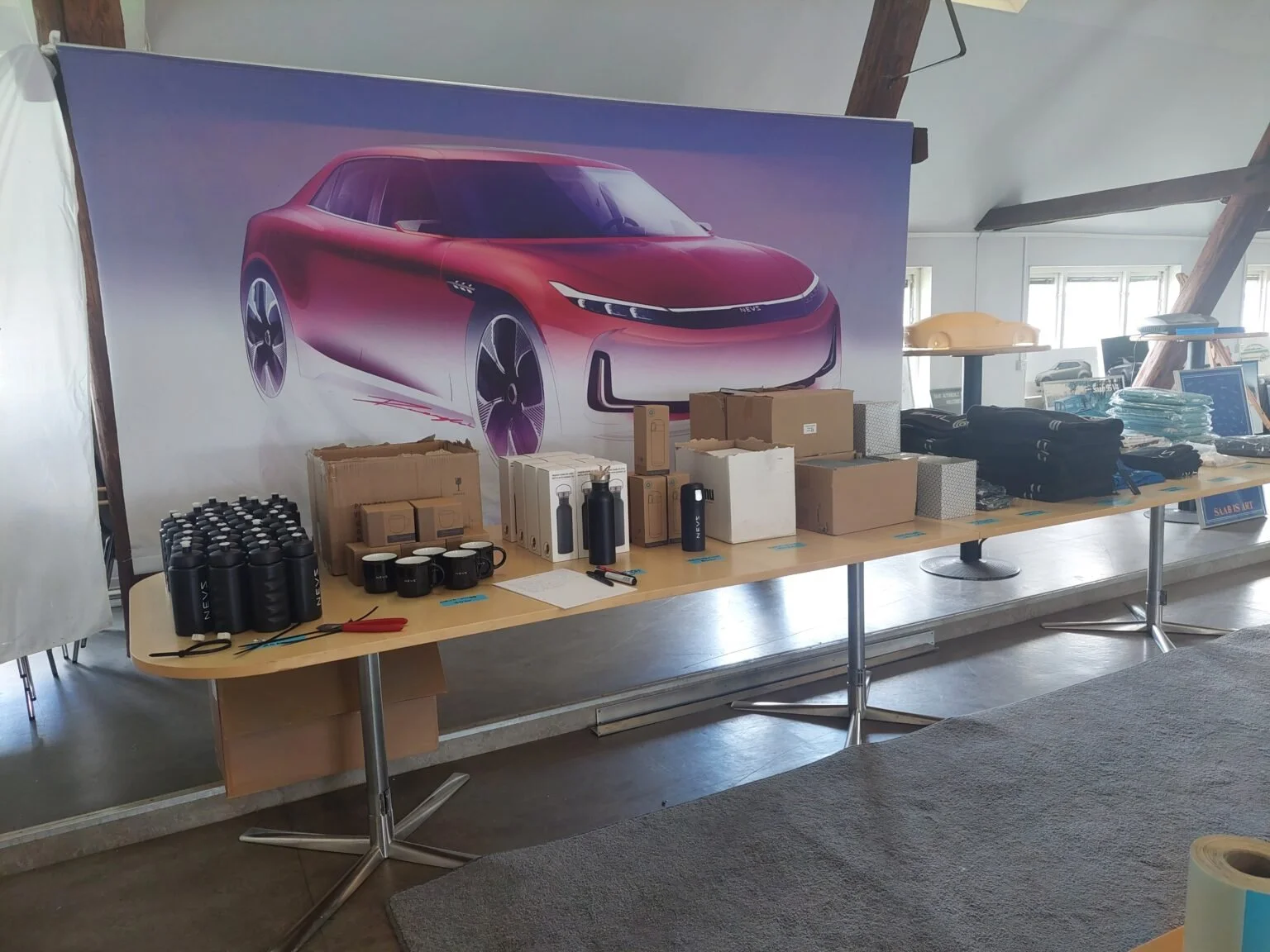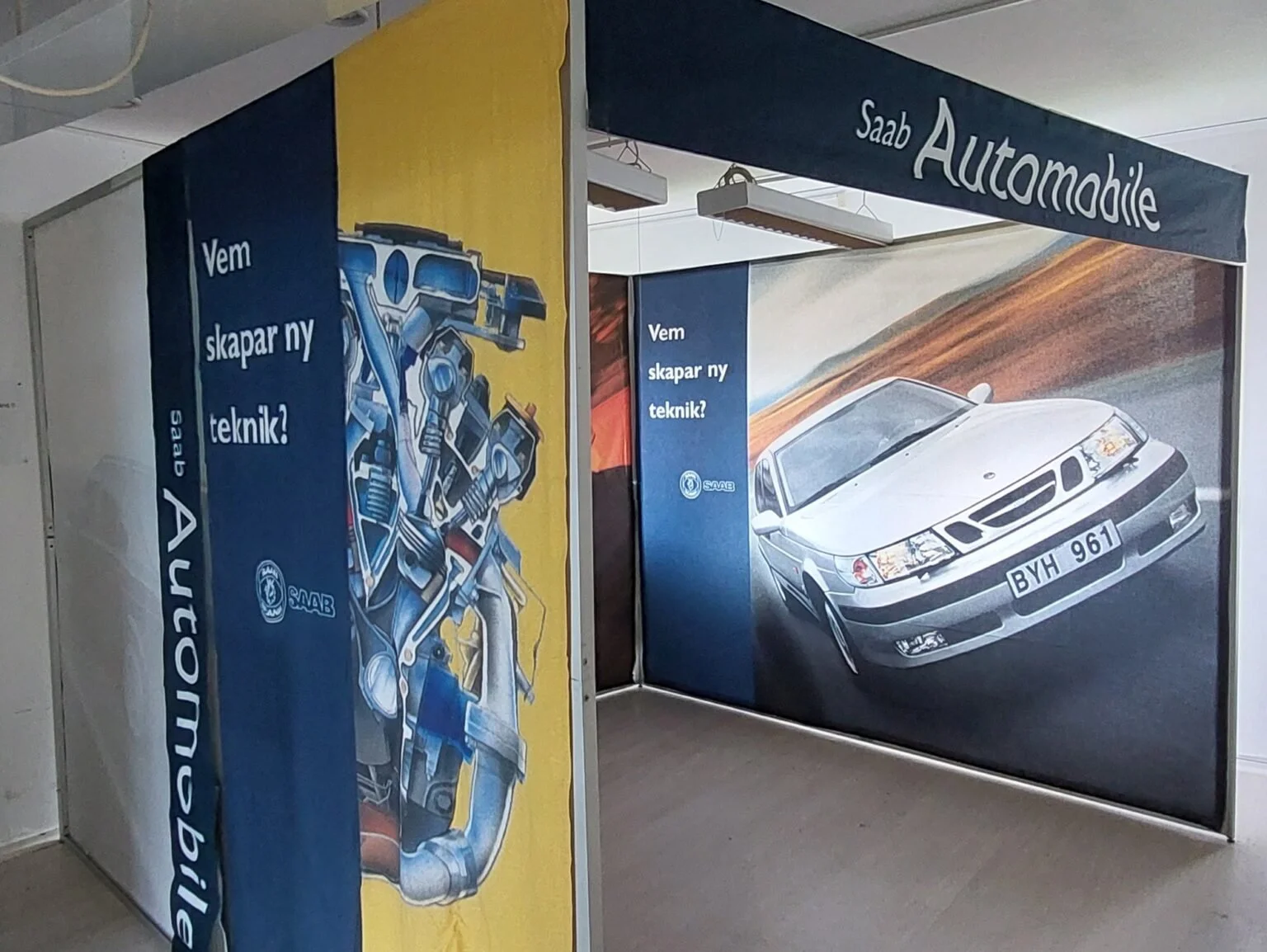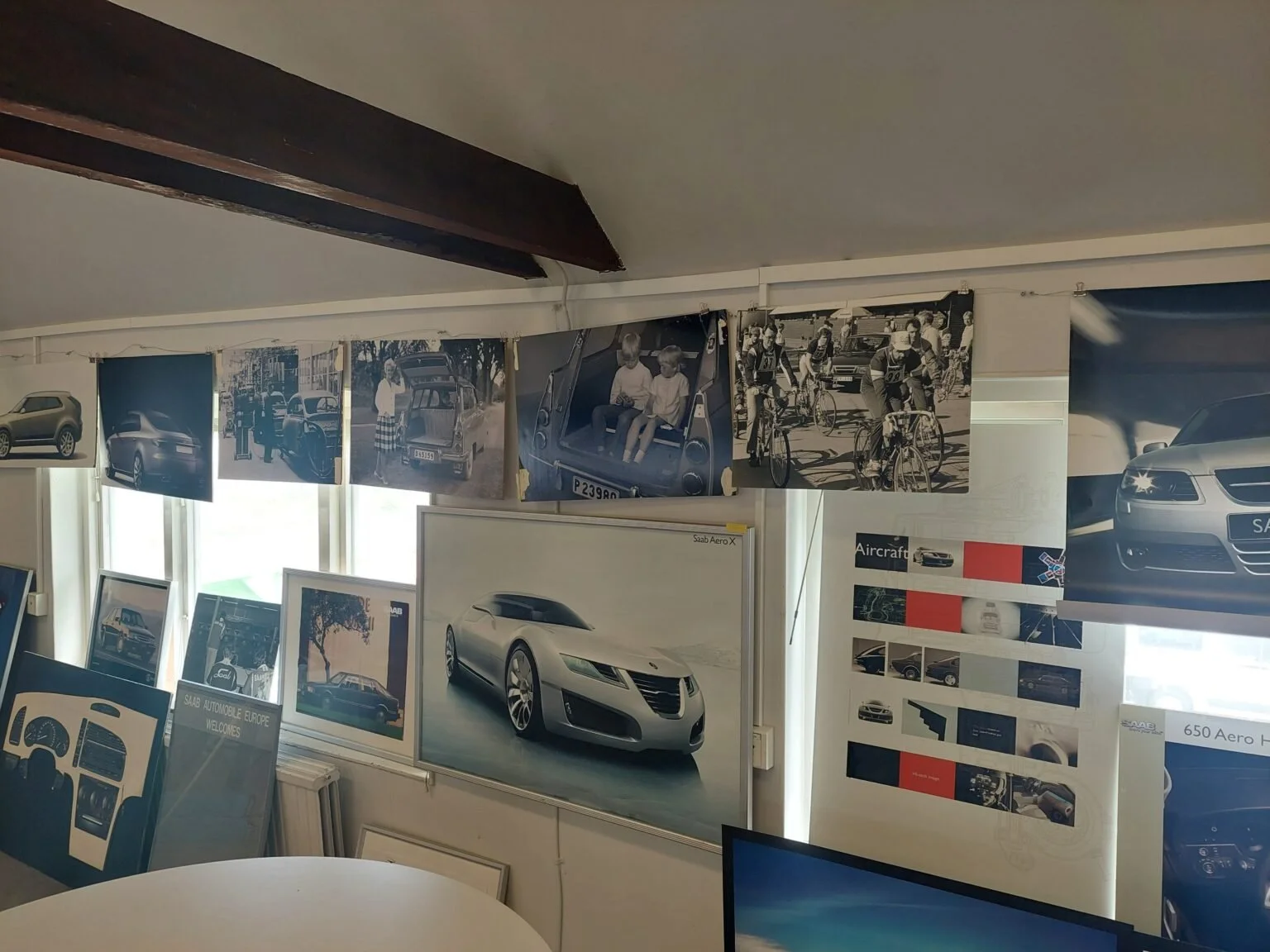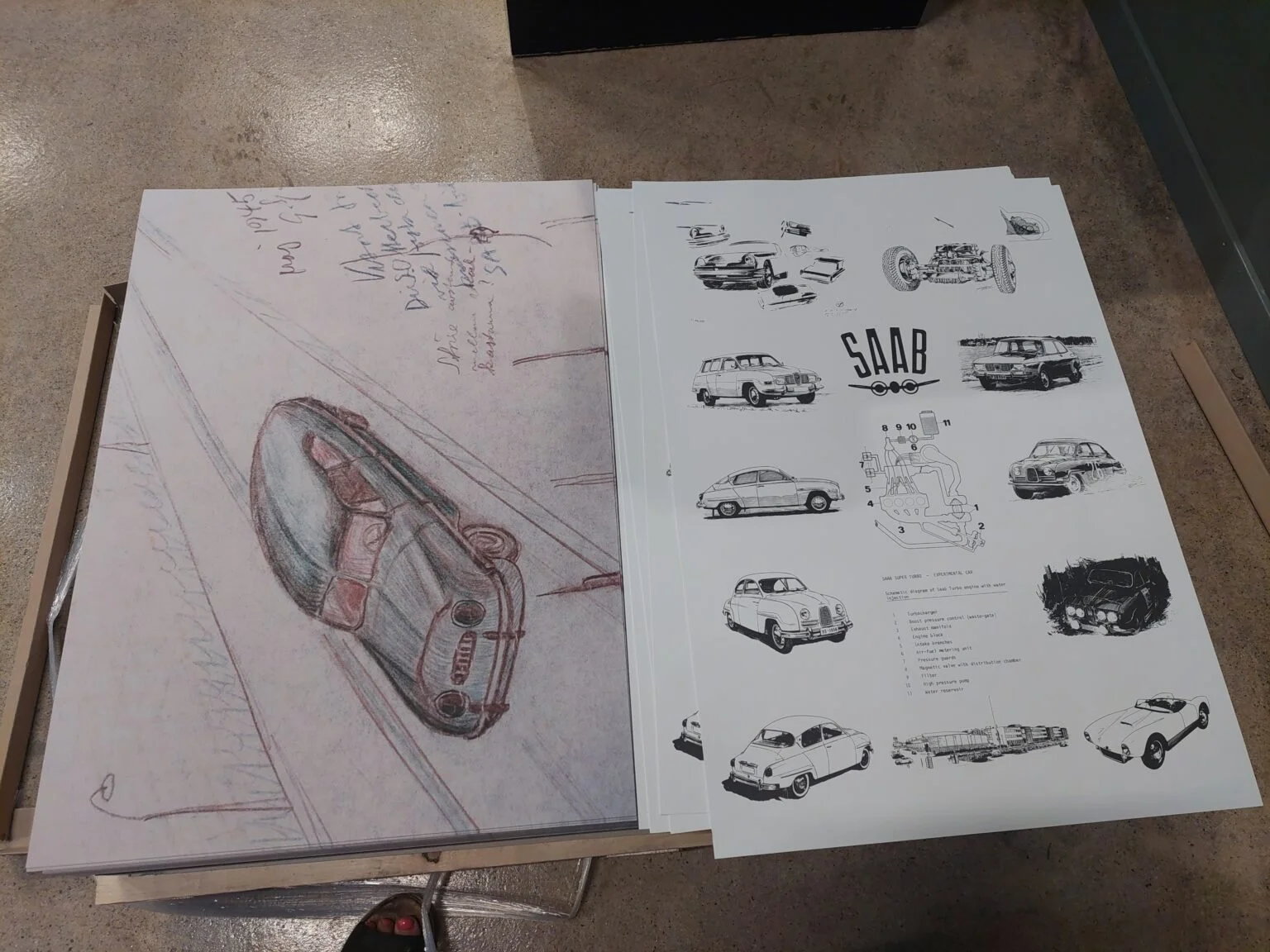Total BioPower
Saab is already established as the leading player in Europe's emerging market for 'flex-fuel' vehicles able to run on gasoline and/or bioethanol (E85). Its current Saab 9-5 BioPower model is the best-selling flex-fuel car in Europe and Sweden and, at Geneva this year, Saab also announces BioPower's introduction throughout its 9-3 product range.
So far, Saab BioPower development has been focused on using E85 fuel, (85% bioethanol/15% gasoline). Now, with the announcement of the fully functioning BioPower 100 Concept, Saab confirms its leadership position by showing how bioethanol technology could be further extended. In combining pure bioethanol with Saab's expertise in turbocharging, the BioPower 100 Concept offers drivers an exciting win/win proposition: greener motoring with dramatically enhanced power and performance.
Running on E100, the concept car's engine delivers peak power of 300 hp at 5,800 rpm and an exceptionally strong 400 Nm of torque between 3,000 and 5,100 rpm, withalmost 85% available at just 2,000 rpm. This strong and flexible power delivery gives the Saab BioPower 100 Concept car zero to 100 kph acceleration in just 6.6 secs and 80 - 120 kph (fifth gear) in an even more impressive 8.2 secs. The standard 150 hp gasoline engine produces 240 Nm of torque from 1,800-3,500 rpm, giving zero to 100 kph in10.2 secs and 80-120 kph (fifth gear) in 16.3 secs.
The secret behind such enhanced performance is the ability of E100 fuel to resist harmful self-ignition, or 'knocking', as the fuel/air mixture is compressed in the cylinder. This attribute is denoted by E100's high 106 RON octane rating. It permits the use of an engine compression ratio that is higher than normally possible with turbocharging, giving more power and greater combustion efficiency without risk of knocking.
The BioPower 100 Concept's engine operates with a compression ratio of 11.0:1, compared to 8.8:1 for the standard gasoline engine. This has been achieved by modifying the shape of the piston crowns to reduce the volume of the combustion chamber, thereby raising the engine's compression ratio.
New software for Saab's powerful Trionic engine management system, which controls the throttle setting, ignition timing, fuel injection and turbo boost pressure, looks after the different ignition timing and fuel/air mixture requirements of E100 fuel.
More durable valves and valve seats are fitted to the engine, together with bioethanol-compatible materials throughout the fuel system. The only other modification necessary is pre-heating of the fuel. This is required to achieve good cold-starting performance, which is the main reason why bioethanol is currently blended with gasoline and sold as E85 fuel.
In ambient temperatures below 15°C, the chemistry of E100 makes it resistant to vaporization and, as a result, it can be difficult to start the engine. To overcome this issue, the Saab BioPower 100 Concept has an experimental fuel heating system, using small heating elements in the inlet ports downstream of the injectors. When the engine is cold, these elements warm the incoming fuel sufficiently to allow it to vaporize. Shortly after start-up, the function is automatically deactivated.
On The Road
In optimising the potential of bioethanol fuel, the Saab BioPower 100 Concept turbo engine offers improved driveability, as well as greater full power performance. The high compression ratio allows the engine to generate more torque more quickly, particularly from low engine speeds. On the road, the driver of the BioPower 100 Concept will immediately notice a sharper engine response, with a better low speed pick-up before the turbo is engaged.
On full throttle openings, the turbocharger packs up to 1.2 bar boost, without risk of 'knocking' from the high octane fuel. It gives the BioPower 100 Concept driver access to the sort of in-gear performance typical of a modern, naturally-aspirated engine of four liters or more. The smooth power delivery - without fossil fuel emissions - takes Saab's traditional 'less is more' turbo philosophy to a new level.
That impressive 150 hp/liter specific power output also indicates considerable future potential for engine 'rightsizing', giving the driver the performance characteristics of a 'large' engine without incurring its additional weight, greater complexity or higher fuel consumption. In this way, E100 offers significant potential to reduce the displacement of an engine - thereby reducing fuel consumption - while still achieving a desired power level.
The overall fuel consumption of the current Saab 9-5 BioPower engine using E85 is about 30% higher than on gasoline and the optimized BioPower 100 engine is expected to yield a near 10% gain against this. Bioethanol burns at a lower temperature than gasoline, which reduces thermal stresses on the engine and benefits fuel consumption at higher cruising speeds. With the future addition of direct injection and lean-burn technology, E100 fuel consumption can move even closer to gasoline levels.
For optimum energy saving, future E100 applications could also be combined with electric hybrid technology, reducing fuel consumption and CO2 emissions still further. This development has already been previewed in the Saab BioPower Hybrid Concept, the world's first such vehicle to use pure bioethanol.
Whilst the BioPower 100 Concept is focused on performance, it still retains a 'flex-fuel' capability and the engine will also run on gasoline, or E85, although power levels are not so high. Trionic monitors fuel quality after every visit to the filling station and automatically makes any adjustments necessary for running on E100/E85 and/or gasoline in any combination.
To handle the increased performance, the BioPower 100 show car is fitted with a limited-slip differential and larger front brake discs (345 mm) and calipers, while using the sports chassis settings of Saab 9-5 Aero SportCombi. It also has a dual pipe rear exhaust system, with tailpipes similar to those of the Aero X Concept.

